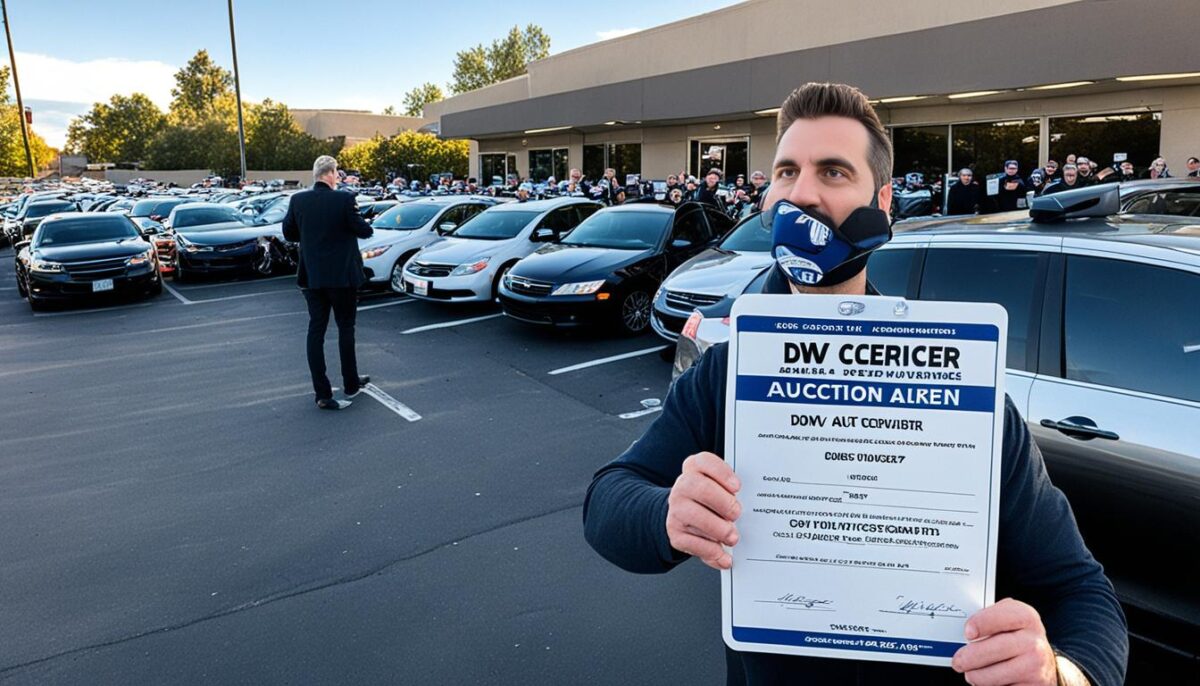Attending a car auction can be an exciting and rewarding experience, but it’s essential to be prepared. In this article, we’ll guide you through the essential things you need to know and do to successfully attend and participate in a car auction. From the necessary documents to research and bidding strategies, we’ll cover everything to help you find great deals on vehicles at car auctions.
Car auctions offer a unique opportunity to find high-quality vehicles at competitive prices. Whether you’re in the market for a new car, a reliable used vehicle, or a classic automobile, navigating the auction process can be daunting. By understanding the necessary preparations and the auction process, you’ll be better equipped to make informed decisions and walk away with the car of your dreams.
Documents and Preparations for Attending a Car Auction
Attending a car auction can be an exciting and rewarding experience, but it’s important to come prepared. Before you head to the auction, make sure you have all the necessary documents in order. This includes a valid photo ID, proof of funds or financing, and any required registration paperwork for the car auction itself.
Essential Documents to Bring
- A valid, government-issued photo ID, such as a driver’s license or passport. This is typically required for registration and bidding at a car auction.
- Proof of funds or financing. This could be a bank statement, letter of credit, or pre-approval from a lender. Knowing your spending limit is crucial for making informed bidding decisions.
- Car auction registration paperwork. Many auctions require you to pre-register and provide information like your name, address, and contact details.
Researching Vehicles and Setting a Budget
In addition to the necessary documents, it’s important to thoroughly research the vehicles you’re interested in bidding on. Inspect the cars, check their vehicle history reports, and determine the maximum price you’re willing to pay. Setting a realistic budget will help you avoid overspending and ensure you get the best deal possible on the documents for car auction and the car auction vehicle inspection.
By taking the time to prepare and research before the auction, you’ll be in a much better position to find the perfect vehicle at the right price. Remember, a little preparation can go a long way in ensuring a successful and stress-free car auction experience.
“Doing your homework and setting a budget are key to getting the best deal at a car auction.”
Need to Go Car Auction: Understanding the Process
Participating in a car auction can be an exciting and rewarding experience, but it’s important to understand the process before you get started. From familiarizing yourself with the bidding system to navigating auction etiquette, having a solid grasp of how car auctions work can help you feel confident and prepared when it’s time to start bidding.
The Bidding Process Explained
Car auctions typically follow a fast-paced bidding system, with the auctioneer rapidly calling out bids and moving the process along. As a potential buyer, you’ll need to be ready to act quickly and decisively when you see a vehicle you’re interested in. Here’s a quick rundown of what to expect:
- The auctioneer will start the bidding at a predetermined opening price.
- Bidders will raise their hands or use bidding paddles to indicate their bids.
- The auctioneer will continue to call out higher bids until the bidding stops.
- The highest bidder will be the winner and will have the opportunity to purchase the vehicle.
It’s important to remember that the bidding process can be fast-paced and intense, so it’s crucial to stay focused and be prepared to act quickly if you want to secure the vehicle you’re after.
Auction Etiquette and Expectations
Attending a car auction is not just about the bidding – it’s also about understanding and following the proper etiquette. Here are some tips to keep in mind:
- Arrive early to register and get a bidding number.
- Avoid disrupting the auction process by remaining quiet and attentive.
- Be respectful of other bidders and the auctioneer.
- Refrain from touching or inspecting vehicles unless you have permission.
- Be prepared to pay the winning bid amount in full, typically within a short timeframe.
By following these guidelines, you can ensure a smooth and enjoyable auction experience for both yourself and the other participants.
Familiarizing yourself with the car auction process, understanding how car auctions work, and learning the proper etiquette for participating in car auctions are all essential steps in preparing for a successful auction experience. With the right knowledge and preparation, you’ll be well on your way to finding your next great car deal.

“The key to success at a car auction is being informed, prepared, and ready to act quickly when the right opportunity presents itself.”
Bidding Strategies and Tips for Success
Navigating the exhilarating world of car auctions can be both thrilling and daunting. To ensure you emerge victorious, it’s crucial to develop effective car auction bidding strategies and familiarize yourself with valuable car auction tips. By leveraging these techniques, you’ll be better equipped to secure the best deals and drive away with a prize worth celebrating.
Evaluating Vehicles and Identifying Potential Issues
Before you raise your paddle and place that winning bid, it’s essential to thoroughly evaluate the cars at auction and identify any potential issues that could impact the vehicle’s value. Take the time to inspect each prospective purchase, both inside and out, to uncover any hidden problems or concerns.
- Examine the vehicle’s exterior for signs of damage, dents, or rust, which could indicate more extensive issues.
- Inspect the interior for any wear and tear, functionality of features, and overall condition.
- Check under the hood to assess the engine’s health and identify any visible problems with the mechanical components.
- Test the vehicle’s performance, including acceleration, braking, and handling, to ensure it meets your expectations.
By identifying issues in auction vehicles, you can better estimate the true value of the car and avoid overpaying for a vehicle that may require costly repairs down the line. This diligent approach will give you a competitive edge and increase your chances of securing a reliable, high-quality purchase.
“The key to success at a car auction is to do your homework and know what you’re bidding on. Don’t get caught up in the excitement and end up overpaying for a car with hidden problems.”
By combining strategic car auction bidding strategies and a keen eye for vehicle evaluation, you’ll be well on your way to triumphant results at the next car auction you attend. Remember to stay focused, trust your research, and let the thrill of the hunt guide you to your dream car.
Post-Auction Steps: Paperwork and Vehicle Transfer
After winning the bid at the car auction, there are a few final steps to complete the transaction. First, we’ll need to handle the necessary paperwork, including the bill of sale and vehicle title transfer. It’s essential to familiarize ourselves with the post-auction process to ensure a smooth and hassle-free experience.
Once the auction is over, we’ll work closely with the auction house staff to finalize the purchase. This typically involves signing the bill of sale and transferring the vehicle’s title to our name. Depending on the auction location, we may need to provide additional documentation, such as proof of insurance or a valid driver’s license.
The final step in the process is transferring the vehicle to our possession. This may involve arranging for transportation or driving the car home ourselves. It’s important to review the vehicle thoroughly and address any concerns before leaving the auction site. By understanding the post-auction steps, we can ensure a seamless and successful acquisition of our new car.



